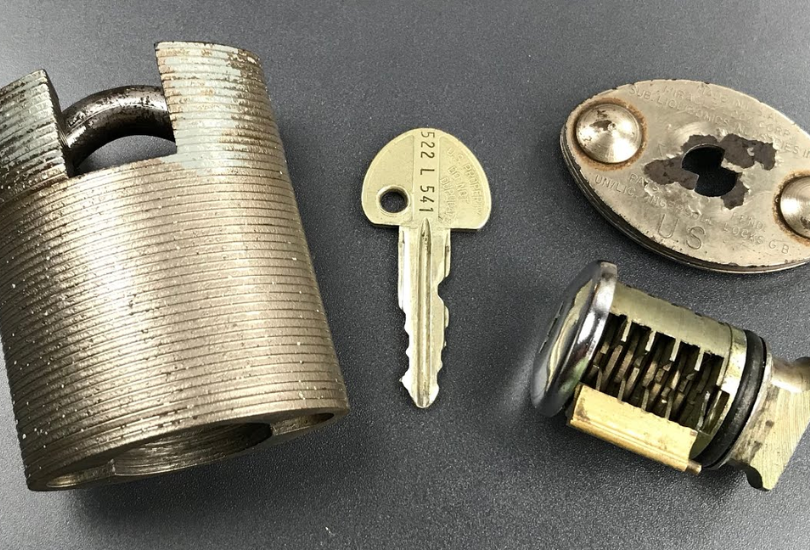Are you intrigued by the intricacies of locks and keys? Or perhaps you’re attracted to the idea of a hands-on career that blends technical knowledge and craftsmanship? If so, becoming a certified locksmith could be your calling! Let’s navigate the path to achieving this career together.
Why Become a Locksmith?
Ever lost a key or locked yourself out? You’ve probably called a locksmith in such a crisis. As a locksmith, you’ll be a real-life superhero, saving the day for individuals and businesses alike. You’ll also enjoy steady demand, as locks and security never go out of style.
Understanding the Locksmith Profession
The Role of a Locksmith
Locksmiths are security professionals who install, repair, and adjust locks in everything from cars to office buildings. They also duplicate and program keys, respond to emergency lockouts, and install safes. The job demands a blend of mechanical understanding, problem-solving, and excellent customer service.
Skills Required
Successful locksmiths need technical skills, dexterity, problem-solving ability, and a great deal of patience. You’ll also need excellent communication and customer service skills, as you’ll interact with clients regularly.
Education and Training
Educational Requirements
There’s no specific educational requirement to become a locksmith, but a high school diploma or GED is typically needed. Courses in mathematics, mechanics, and metalworking can provide a solid foundation.
Locksmith Training Programs
Many vocational schools offer locksmith training programs. These programs can range from a few months to a year and cover topics like key identification, lock installation, residential locks, automotive locks, and lock picking.
Specializations in the Locksmith Field
There are various areas of specialization within the locksmith profession, including automotive, residential, commercial, and institutional locksmithing. Selecting a specialty can help focus your training and career direction.
Getting Certified
Certification Bodies
Several organizations offer locksmith certification, such as the Associated Locksmiths of America (ALOA). The ALOA provides various levels of certification, such as Registered Locksmith (RL), Certified Registered Locksmith (CRL), Certified Professional Locksmith (CPL), and Certified Master Locksmith (CML).
The Certification Process
The certification process typically involves passing an exam that tests your knowledge and skills in the locksmith field. The exam often covers topics like general locksmithing, key duplication, lock opening, lock installation, and lock repair.
Benefits of Certification
Certification validates your skills, boosts your credibility, and can lead to more job opportunities and higher pay.
Starting Your Career as a Locksmith
Apprenticeship
Most locksmiths start their career through an apprenticeship, which provides hands-on experience under the guidance of an experienced locksmith. An apprenticeship is invaluable, as it gives you practical experience that can’t be gained from classroom training alone.
Job Opportunities
There are various employment opportunities for locksmiths, including locksmith companies, security firms, hardware stores, and institutions such as hospitals and universities.
Starting a Locksmith Business
If you’re entrepreneurial, you might consider starting your own locksmith business. This will require additional skills in business management and marketing.
Continuing Education and Career Growth
The locksmith field is always evolving with new technologies and security systems. Continuing education, whether through certification programs or industry seminars, can help you stay current and grow your career.
Conclusion
Becoming a certified locksmith offers a rewarding, secure, and flexible career for those with a knack for problem-solving and a passion for helping others. Follow these steps, and you’ll be well on your way to unlocking your potential!
Frequently Asked Questions (FAQs)
Is any specific degree required to become a locksmith?
No, a specific degree is not required, but a high school diploma or GED is typically needed.
How long does it take to become a certified locksmith?
The duration varies, but it typically takes several months to complete a training program and pass the certification exam.
Do locksmiths need a special license? In some states and countries, locksmiths require a license to operate. Always check your local regulations.
Can a locksmith specialize in more than one field?
Yes, a locksmith can specialize in multiple areas such as residential, commercial, and automotive locksmithing.
Is the locksmith profession a growing field?
Yes, with the advancement of technology, the need for professional locksmiths, especially those familiar with electronic security systems, is on the rise.












